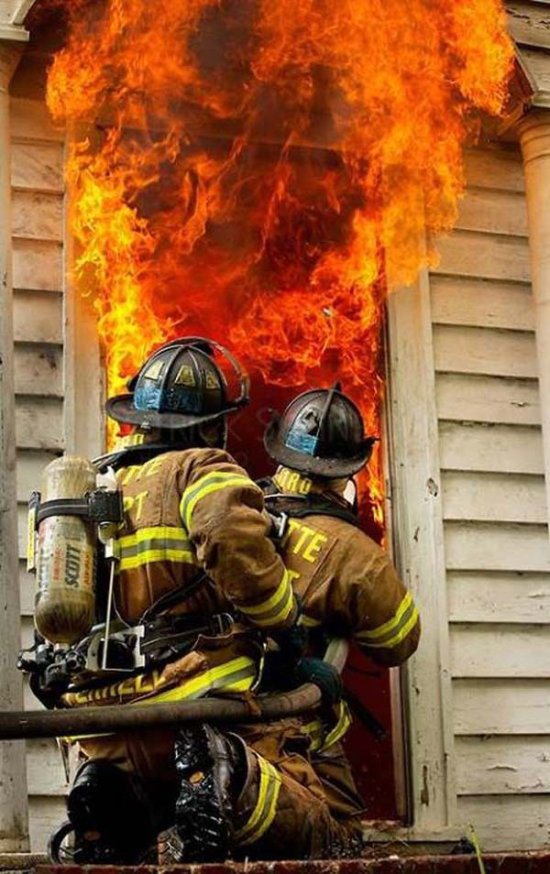GameStop is in the headlines this week given the immense surge in its stock price and the crowdsourced, Reddit-inspired effort to make it so. GameStop, a gaming retailer specializing in video games and consoles, has not been in great shape given the drop in traffic to its stores during the Covid-19 pandemic. With the retailer's value continuously fluctuating in the stock market, GameStop has grabbed our attention again after having done so last week with news that it had restocked the Playstation 5 and Xbox X and S models. As the retailer continues to dominate headlines, it might be a good time to learn more about the gaming store, which sells much, much more than video games and gaming consoles. As GameStop foundered, some analysts suggested short-selling the stock to profit off the price going down.
Investors borrowed shares of GME and then sold them in the hope that, once they bought the stock back, they'd make money off the difference. But in August, pet food site Chewy.com founder Ryan Cohen purchased a large number of GameStop shares and began strongly advocating for the company to build out its ecommerce presence. Cohen ascended to its board of directors earlier this month, and as Ars Technica reported earlier this week, analysts and investors responded positively to the news.
As the stock climbed, short sellers found themselves having to buy more stock to cover their borrowing. Within a couple of days, GameStop's stock had doubled. GameStop Corp. is an American video game, consumer electronics, and gaming merchandise retailer.
The company is headquartered in Grapevine, Texas , and is the largest video game retailer worldwide. As of January 30, 2021, the company operated 4,816 stores including 3,192 in the United States, 253 in Canada, 417 in Australia and 954 in Europe under the GameStop, EB Games, ThinkGeek, and Micromania-Zing brands. The company was founded in Dallas in 1984 as Babbage's, and took on its current name in 1999. The company's performance declined during the mid-late 2010s due to the shift of video game sales to online shopping and downloads and failed investments by GameStop in smartphone retail. The business model of the mall-based retailer of physical copies of video games has taken a beating as fewer people go out shopping in malls and as more people download video games instead of buying them in stores.
That led some big financial institutions to "short" the stock, or bet on the price to fall. GameStop provides its customers either cash or trade credit in exchange for customers' unwanted video games, accessories, and tech. The used video game trade-ins have twice the gross margins of new video game sales.
Some video game developers and publishers have criticized GameStop for its practices, as they receive no share of the revenue from the sale of used games. GameStop responded to these criticisms in 2009 by stating that 70% of store credit generated by game trade ins was used to purchase new rather than used games, generating close to $2 billion in annual revenue. Bullish retail traders were ginned up when the marketmakers who sold them their bets were forced to hedge against rising prices by buying shares.
Short-sellers were also forced to buy shares after incurring losses worth several billion dollars. The wall-to-wall coverage of the stock has prompted yet more investors to pile in. GameStop was the single most traded stock in America on January 26th; volumes matched that in the five biggest tech giants combined .
The masses are coming for other heavily shorted stocks too. Share prices for AMC, a chain of cinemas, and Nokia and Blackberry, which once made popular mobile phones, have also spiked. This isn't the first time day trading has become trendy, nor is it the first time day traders have been accused — often rightly — of being a little bit reckless.
Last summer, some of them piled onto bankrupt Hertz, for which there was really no good case. Many of them treat trading like a game, which can obviously be dangerous. Plenty of hedge funds, short sellers, billionaires, and institutional investors treat investing like a game, too.
And every once in a while, they're bound to lose, too, even to the little guys. With more than 5,000 stores, GameStop is a video game chain where customers can buy, sell and trade their games, consoles and gaming accessories. It's a mall staple, but shopping centers have been struggling for years, and the coronavirus pandemic has been devastating for retailers. As small investors championed their purchases of the retailer's stock in viral posts online, the stock rapidly rose in price, forcing the large investors to spend billions of dollars to cover their losses.
GameStop's stock price has skyrocketed from where it was at the start of the year, at under $20, to nearly $350 at market close on January 27. The stock slid to under $200 at market close on January 28, the day Robinhood clamped down on buying it, and after that was lifted, the stock shot up again. The stock's volatility is the result in no small part of Redditors and the short sellers they went after. WallStreetBets has an antagonistic relationship with shorts — many retail traders are betting stocks will go up, not down. The online customer service repeatedly ignored my questions, copy and pasted the replies and did not bother to read my actually requests.
I attempted to return a faulty item to get repairs, I had the receipt of purchase, within warranty time and everything. I ended up after months of back and forth attempting to resolve this. Nor did gamestop employees have so little interest in actually fixing the problem. For everyone out there that trusted GameStop because you are loyal customer and fan of the shop for years like myself, don't be fooled.
The service has changed and I will never be shopping in gamestop again. In August 2019, Michael Burry's investment firm Scion Asset Management sent a letter to GameStop executives urging the company to engage in a $238 million stock buyback. The letter also revealed that Scion owned approximately 2,750,000 shares, or about 3.05% of GameStop. The stock price of GameStop, which had been in steady decline in share price since late January 2019, spiked roughly 20% after Burry revealed that he was buying the stock in an interview with Barron's.
In the interview, Burry explained that both Sony and Microsoft would enter the next console generation with a physical disc drive and therefore likely extend the longevity of GameStop. He also noted that the company's balance sheet was in good condition. In December 2019, GameStop announced that it spent $178.6 million to buy 34.6 million shares, or 34% of the shares outstanding, at an average price of $5.14 per share. In May 2020, Burry lowered his stake in GameStop. GameStop traces its roots to Babbage's, a Dallas, Texas-based software retailer founded in 1984 by former Harvard Business School classmates James McCurry and Gary M. Kusin.
The company was named after Charles Babbage and opened its first store in Dallas's NorthPark Center with the help of Ross Perot, an early investor in the company. The company quickly began to focus on video game sales for the then-dominant Atari 2600. Babbage's became a public company via an initial public offering in 1988. By 1991, video games accounted for two-thirds of Babbage's sales.
Like other physical retailers, GameStop's business has suffered in the past year. Few gamers would rather hit the mall than Amazon's significantly safer Buy Now button. But GameStop was in dire straits even before the pandemic struck.
Its thousands of store locations couldn't compete with the digital marketplaces offered by the game consoles and PC titans Steam and Epic Games. GameStop laid off dozens of regional managers in mid-2019 after a precipitous, years-long decline in its stock price. To remedy the situation, GameStop announced it would pivot to a social-hub model, like a modern LAN cafe. As a business, GameStop, which primarily sells video games and gaming consoles, has been on a slow decline for some time.
GameStop has held on in part thanks to its business in used-games (which are cheaper, and which you can't simply download) and because of high demand for the new PlayStation 5 and Xbox Series X/S consoles . That Ryan Cohen, co-founder of e-commerce darling Chewy, joined the board this month is also a reason for optimism. But overall, GameStop is running out of extra lives, its batteries are dying, and its parents are telling it to go to bed because it's got school in the morning.
"For years, the same hedge funds, private equity firms, and wealthy investors dismayed by the GameStop trades have treated the stock market like their own personal casino while everyone else pays the price," she said in a statement. "It's long past time for the SEC and other financial regulators to wake up and do their jobs — and with a new administration and Democrats running Congress, I intend to make sure they do." Key to what's going on is "short selling" or "shorting", where a big investment company such as a hedge fund tries to make money by betting that a company's share price will fall. WallStreetBets, a subreddit, and the infamous meme stocks have been trending again since last week as retail investors turn to AMC, driving its stock price up and costing short sellers $1.3 billion.
Vinyl figures, collectibles, board games and more. Through GameStop's unique buy-sell-trade program, gamers can trade in video game consoles, games, and accessories, as well as consumer electronics for cash or in-store credit. But GameStop for the past year has been the opposite of all that. It was a bad company, whose stock had already fallen from $56 a share in 2013 to about $5 in 2019.
It's really risky to aggressively short a company whose stock, having fallen 95 percent, is floating around $5; there just aren't a lot of numbers under five. Plus, companies in GameStop's situation can always try to restructure their operations, or appeal to a white knight, or exit the business and sell off their commercial real estate, or do something else when the cost of capital is basically zilch. One layer up, you have institutional investors, such as hedge funds, which "shorted" GameStop, or bet that the value of the stock would decline. Depending on how you look at it, short sellers are heroes of capitalism identifying rotten companies and industries on the verge of collapse, or they're corrupt worrywarts picking on lovable, vulnerable firms. Either way, GameStop was one of the more popular targets of these hero-villains. By one metric, the company was the second-most-shorted firm out of more than 6,000 companies listed in the New York Stock Exchange and Nasdaq.
If GameStop's stock continued to fall, as it had consistently since 2013, hedge funds that had bet against the company would have gotten even richer than they already are. The video game and consumer electronics retailer's woes are the latest example of a brick-and-mortar retailer impacted by consumers' rush to purchase products online. Penney and Sears Holding have announced plans to shutter several locations. Gamestop needs to focus on having tons of e-sports tournaments (with a buy in and/or membership fee). Create an esports league and have national/regional/local tournaments. Also they need to be live streaming on twitch from each location.
As a rule, from corporate down to the local shop, they should be creating online content about video games. They should leverage their position with Microsoft to see if they can work with Game companies to get secrets/easter eggs in games and then be the streamers that are known for revealing game secrets. Once the pandemic lifts, having physical locals can be a great strength if used well.
There is tons of stuff they can try besides inventing some tech platform. An increasing amount of video game spend is now add-ons. EA makes as much off FIFA Ultimate Team as they do off FIFA, maybe more. GameStop gets a bite off the first retail sale, and off used sales, but they don't get a bite off all the various aftermarket transactions. An increasing amount of video game spend is now free to play. An increasing amount of video game spend is on subscription plans, obviating the need to buy software.
Microsoft has re-aligned their entire company around Xbox Game Pass. Hedge funds, supposedly the professionals, have been betting against GameStop's stock using a trading technique called short selling. Day traders, organizing under the subreddit r/WallStreetBets, are holding onto the shares of GameStop that they own — despite skyrocketing values that have made some of them millions of dollars on paper — to stick it to the hedge funds. GameStop is a retailer facing the same pressures as many others in the United States, where shopping trends and the pandemic have led more people to buy goods online instead of in stores.
Wall Street investors started betting heavily against the company months ago, believing that its brick-and-mortar business model is doomed. When GameStop Corp shares surged by more than 2,500% in January, some customers joked to store staff they should thank the investors who fueled the video game retailer's extraordinary rally for their paychecks. In January 2021, a short squeeze resulted in a 1,500% increase in GameStop's share price over the course of two weeks, reaching an all-time intraday high of US$483.00 as of January 29, 2021, on the New York Stock Exchange. This effect was mainly attributed to a coordinated effort by the Reddit community r/wallstreetbets, a subreddit dedicated to stocks with high market risk. A surge in the stock price in extended-hours trading occurred after Elon Musk made a post on Twitter that included "Gamestonk!" (in reference to r/wallstreetbets) and a link to the community.
Matt Levine has compared the situation to the 2012 'short squeeze' that the SEC charged Philip Falcone with. In February 2017, it was revealed that GameStop enforced, on all of its retail employees, a program known as Circle of Life. The policy itself was made to ensure that each employee would allow a certain percentage of their sales to pre-orders, rewards cards, used games, or have a customer trade in a game. Upon revelation of the policy, many current and former GameStop employees revealed stories of how the policy has led to them lying to customers. Many more claimed that the policy had led to poor working conditions and emotional distress.
Later that month, GameStop reformed the program to solely focus on the store as a whole instead of the previous individual employee basis, though still maintaining a heavy emphasis on the individuals' performance to maintain strong store metrics. Encasing all of this is the investor craze of the past few days, as Reddit's GameStop scheme went viral. Ordinary investors with FOMO have piled into the stock. On most days this week, GameStop was the most exchanged equity in the world, with $20 billion of trading volume daily. This perfect storm was created by the collision of a tantalizing morality play and an age of commission-free trades on popular platforms such as Robinhood, which have converted the raw material of pandemic boredom into a juggernaut of speculation.
Given the monstrous amounts of money at play, several large institutional investors—rival hedge funds, private-equity firms, billionaire tourist dollars—seem to have jumped in as well, scrambling the most simplistic David-versus-Goliath narratives. WEEK AGO few people had probably heard of GameStop, the beleaguered brick-and-mortar purveyor of video games. Millennials might recall visiting a store in their youth; their parents, perhaps, taking them. The firm's share price has spiked from a few dollars in 2020 to a peak of more than $350 on January 27th, transforming a firm that was valued at less than $200m in April 2020 into a $24bn middleweight. This meteoric rise has been chronicled on every front page, pored over on financial television and even discussed in the halls of power. Jerome Powell, the chairman of the Federal Reserve, was peppered with questions about the firm's dizzying ascent at a press conference.
Jen Psaki, the White House press secretary, said that Janet Yellen, the treasury secretary, was keeping a close watch on events. "It was a huge, massive short position," says Corey Hoffstein, chief investment officer of quantitative investment and research firm Newfound Research. A significant amount of money was caught in what's known as a "short squeeze," which happens when investors who have bet against a rising stock have to buy it to cover their losses.























No comments:
Post a Comment
Note: Only a member of this blog may post a comment.